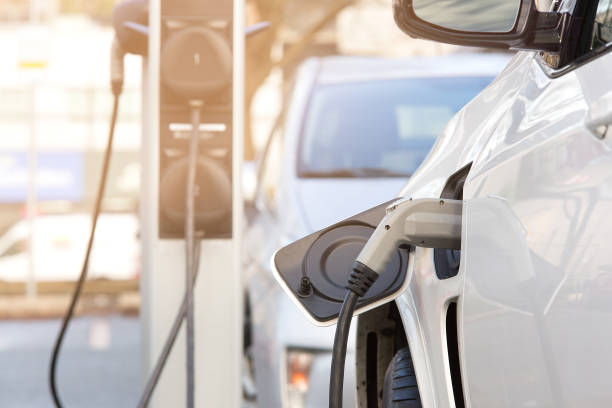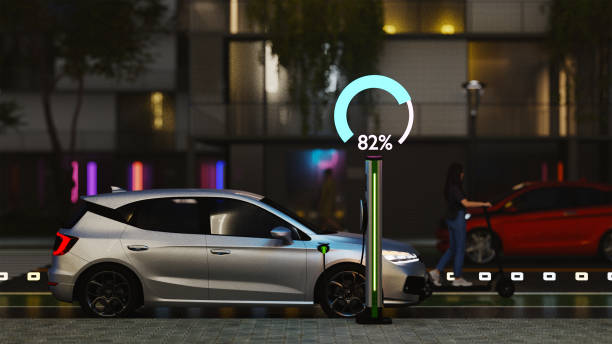Electric Cars vs. Gasoline Cars: Which is the Better Choice?
Pros and cons of electric cars
When it comes to choosing between electric cars and gasoline cars, there are several factors to consider. Let's start by looking at the pros and cons of electric cars.
Advantages of electric cars
1. Environmental friendliness: One of the primary advantages of electric cars is their low impact on the environment. Unlike gasoline cars, electric cars produce zero tailpipe emissions, helping to reduce air pollution and mitigate climate change.
2. Lower operating costs: Electric cars are generally cheaper to operate compared to gasoline cars. They have lower fuel costs, as electricity is typically cheaper than gasoline. Additionally, electric cars tend to have fewer maintenance requirements, reducing overall servicing and repair expenses.
3. Energy efficiency: Electric cars are more energy-efficient than gasoline cars. While internal combustion engines in gasoline cars waste a significant amount of energy through heat and friction, electric cars convert more of the battery's stored energy into motion, resulting in higher efficiency.
4. No reliance on fossil fuels: By driving an electric car, you can reduce your dependence on fossil fuels, which are finite resources. Electricity can be generated from a variety of sources, including renewable energy, further decreasing reliance on non-renewable energy sources.
Disadvantages of electric cars
1. Range anxiety: Electric cars typically have a limited range, which can be a concern for drivers who frequently travel long distances. While advancements in battery technology are gradually improving electric car ranges, they may not be suitable for individuals who rely heavily on long trips.
2. Limited charging infrastructure: Although charging stations for electric cars are becoming more prevalent, the charging infrastructure is still not as widespread as gasoline stations. This limitation can cause inconvenience for electric car owners, especially on long journeys or in areas with limited charging facilities.
3. Longer refueling time: Charging an electric car takes significantly longer than refueling a gasoline car. While you can quickly fill up a gasoline car at a station, recharging an electric car's battery can take anywhere from several hours to overnight, depending on the charging speed and battery size.
4. Higher upfront costs: Electric cars tend to have higher initial costs compared to gasoline cars. The price difference is primarily due to the expensive battery technology used in electric vehicles. However, it's worth noting that the long-term savings in fuel costs and maintenance can help offset these higher upfront expenses.
Environmental impact of cars
Considering the environmental impact is crucial when deciding between electric cars and gasoline cars. Let's explore the environmental implications of both types of vehicles.

Electric cars and the environment
Electric cars have a significantly smaller environmental footprint compared to gasoline cars. Here's why:
1. Reduced greenhouse gas emissions: As mentioned earlier, electric cars produce zero tailpipe emissions. This means they do not release carbon dioxide (CO2) or other harmful gases into the atmosphere while driving. In contrast, gasoline cars emit CO2 and contribute to air pollution, which can have detrimental effects on human health and the environment.
2. Renewable energy integration: Electric cars have the potential to utilize renewable energy sources for charging. By connecting to a grid powered by renewable energy, such as wind or solar, the environmental benefits of electric cars can be further enhanced.
3. Energy production impact: It's important to consider the environmental impact of electricity generation as well. While electric cars produce zero emissions at the tailpipe, the emissions associated with the production of electricity can vary depending on the energy mix of the grid. However, transitioning to cleaner energy sources over time can help mitigate this concern.
Gasoline cars and the environment
In comparison, gasoline cars have a more significant environmental impact:
1. Greenhouse gas emissions: Gasoline cars emit CO2 and other greenhouse gases during operation. These emissions contribute to climate change and air pollution, leading to adverse effects on both human health and the environment.
2. Air pollution: Gasoline cars emit pollutants such as nitrogen oxides (NOx), particulate matter (PM), and volatile organic compounds (VOCs). These pollutants contribute to smog formation and can have detrimental effects on air quality and respiratory health.
3. Oil extraction and refining: The production and refining of gasoline involve processes that can be environmentally damaging. These include oil extraction, which can cause habitat destruction and oil spills, and refining, which requires significant energy inputs and releases pollutants.

Electric cars advantages
Electric cars provide numerous advantages over their gasoline counterparts. Let's take a closer look at some of these advantages:
1. Lower operating costs: Electric cars have lower operating costs compared to gasoline cars, primarily due to the lower cost of electricity compared to gasoline. Additionally, electric vehicles generally require less maintenance as they have fewer moving parts and do not require oil changes.
2. Performance benefits: Electric cars often offer instant torque, providing quick acceleration and a smooth driving experience. They can also have a lower center of gravity due to the placement of heavy batteries, resulting in improved handling and stability.
3. Energy efficiency: Electric cars are more energy-efficient than gasoline cars. According to the U.S. Department of Energy, electric vehicles typically use about 60% of the energy from the grid to power the wheels, while gasoline vehicles only use about 17-21% of the energy stored in gasoline.
4. Reduced noise pollution: Electric cars produce less noise compared to gasoline cars, contributing to a quieter and more peaceful driving experience. This benefit is particularly noticeable in urban areas, where noise pollution can be a significant issue.
Ultimately, the “better” choice depends on individual needs, preferences, and the specific context. Some people prioritize environmental impact, while others may prioritize cost, convenience, or performance. The automotive industry is evolving, and both electric and gasoline cars continue to improve in various aspects.




